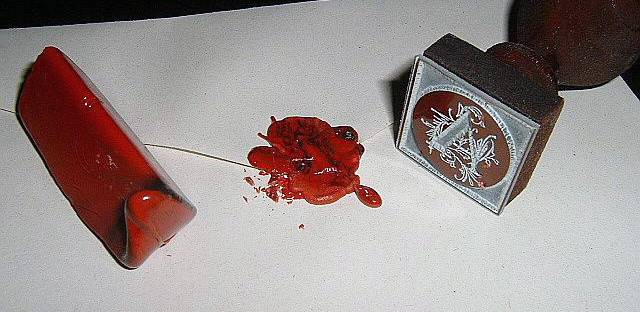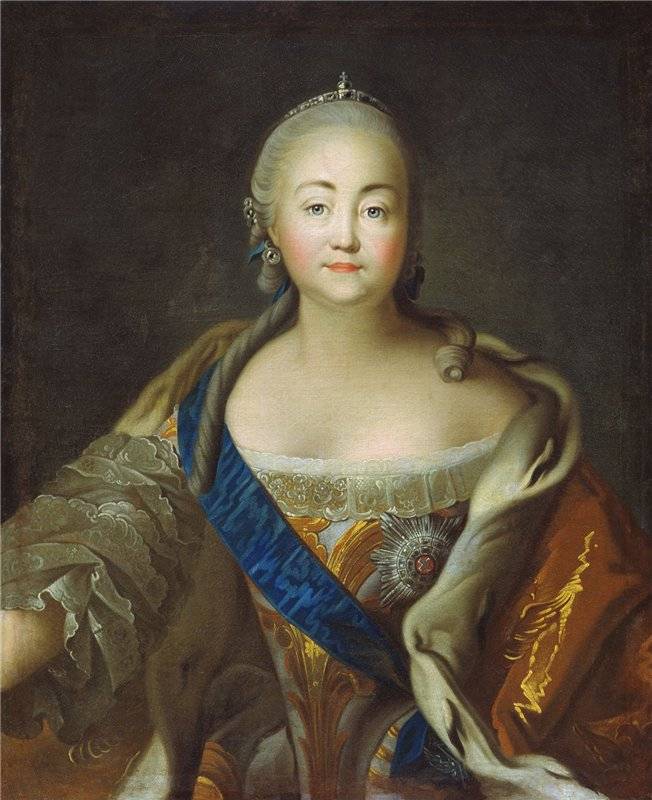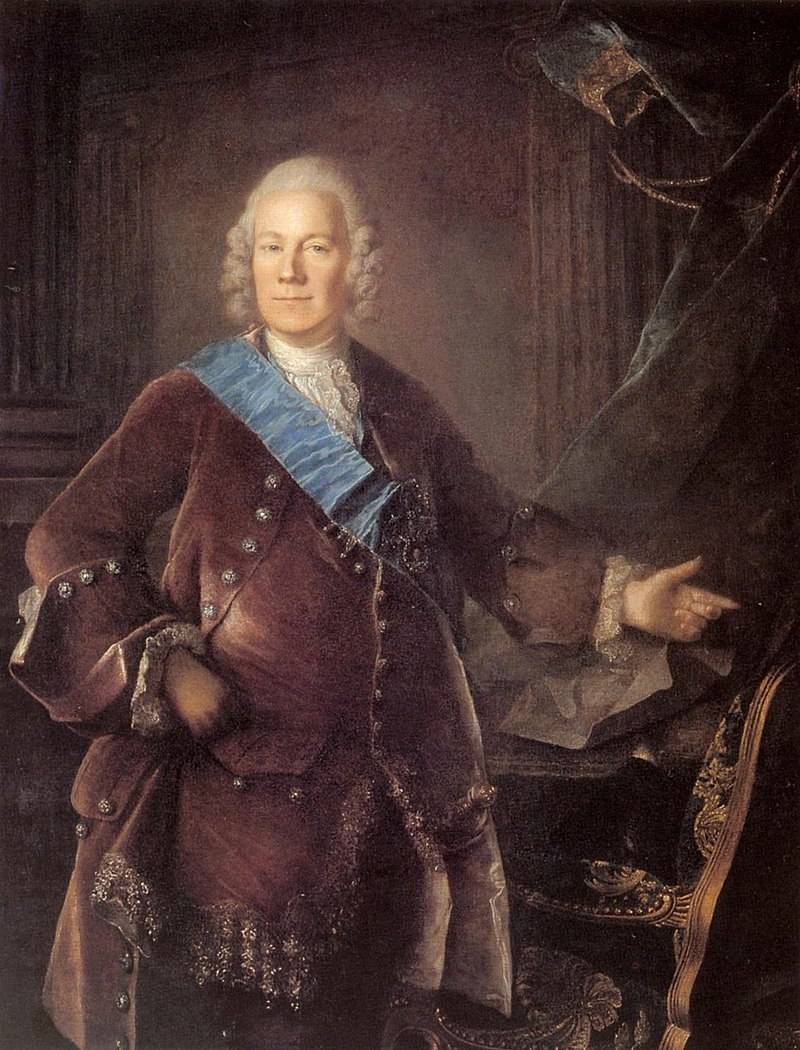"Black offices". The first steps of perusal in the Russian Empire
The hard craft of the perlustrator
The era of "black offices" in Russia is usually associated with the period of the XVII-XIX centuries, when a whole staff worked for secret state needs. Moreover, these were high-class professionals. They had to not only unnoticeably open and read the contents of the envelopes, but also to struggle with specific tricks. Thus, in the postal correspondence of those years, traditional wax and wax seals were practiced, flashing letter contours with threads, as well as more sophisticated techniques — inserting a special unobtrusive artifact, for example, fine hair. An inexperienced perusterator could not have noticed that when opening the envelope, the hair fell out, but the recipient was thus notified of the message being discredited. Often it was possible to meet the double pack of correspondence, when another one was stored inside one large envelope, in which they hid particularly valuable information. And this is not to mention the possibility of thorough encryption of correspondence, especially international correspondence.

All this forced to put at the head of such "intelligence" departments of the most educated and talented people of their time. One of these was the Russian academician, born in Germany, Franz Ulrich Theodosius Epinus, who managed to distinguish himself by serious research in physics, mathematics, chemistry and astronomy. In addition, Epinus taught physics and mathematics to Empress Catherine Alekseevna, and also taught physics, astronomy and anatomy of Grand Duke Pavel Petrovich up to the student's 25 anniversary. At the same time, the scientist was appointed to the College of Foreign Affairs as the head of the encryption service, in which he worked from 1765 to 1797.
It is noteworthy that most researchers stories encryption agree on the lack of genuine portraits of Epinus - on the existing versions are depicted false Epinous. The main reasons for the choice of a scientist in the leaders of such a serious department were remarkable mathematical ability to decipher, personal loyalty to the empress, as well as bachelor status. The latter was especially important - the spouse often became a channel for leakage of secret information. The work in the new field of Epinus was the sea - all incoming and outgoing foreign correspondence were subject to decryption. In some periods, the department worked in several shifts around the clock.
The difficulties faced by the interpreters of the “black cabinets” clearly demonstrate the letter of Epinus dissatisfied with delays in deciphering Catherine:
It was the aerobatics of the "black classroom", but at the subordinate levels of work enough. The state must have a cryptographer, a decryptor, a packet opening specialist, a mail interception agent, a translator, an engraver, a stamp fake maker, a printer and a handwriting simulator, and a chemist. The latter was responsible for deciphering steganographic texts, that is, written in invisible ink. The historical chronicles left us the correspondence of the first head of the perusal service, Aleksey Petrovich Bestuzhev-Rumin, with the St. Petersburg post director Friedrich Hashem at the beginning of 1744. They discussed the problem of creating an analogue of the seal of the Austrian ambassador Baron Neuhaus, who was worked on by a certain carver named Kupi. In the correspondence, Ash justifies the delay in the printing of the seal by the printing press, and in response receives an order "to cut the seam with the best diligence, because the current Neigauz is not very good craftsmanship." In general, seal carvers were a kind of elite of the service of perusal. And the empress paid special attention to attracting only such people from Russia to such filigree work. Elizabeth bluntly said that the office of the carver must be isolated, secured and seized with tools after the “shift”. Over time, even engravers of the Academy of Sciences were involved in such important work.

It was not always possible to open and read foreign mail without evidence in “black offices”. Embassy staff knew about the work of the Russian special services and created many obstacles to their work. So, following the results of processing the dispatches to Berlin, Friedrich Asch again had to justify himself before Bestuzhev-Rumin:
«
Alexey Bestuzhev-Ryumin - the father of “black cabinets”
One-time actions to intercept the correspondence of foreign ambassadors and ciphers were fairly common in the Russian Empire. Famous was the story of the French major general Duc de Fallari, who was sent on a secret mission in 1739. They seized him in Riga and during the search found the keys to the ciphers, as well as a lot of strategically important information for the Russian throne. However, it was far from systematic work in this area, a lot of important information passed by the state.
The leadership of the new service for intercepting mail, deciphering and reading was entrusted to the Russian leader, count and diplomat Alexei Petrovich Bestuzhev-Ryumin. There is no exact date for the organization of the new office, but this was tentatively at the beginning of 1742, when the count received the post of chief post officer of Russia. The fate of the first boss of the “black offices” was close in its intensity to the best adventure stories. He was only twice sentenced to death, but each time he replaced the highest measure with a reference. Aleksey Petrovich began his career with studies in Germany and England, and after that he worked in the diplomatic consulates of Copenhagen and Hamburg. 1744 — 1758 became the real peak of Bestuzhev-Riumin’s career - he became the head of the government, or the chancellor, under Elizabeth Petrovna. Bestuzhev-Rumin had no specific skills in cryptography or perusal - he was the typical effective manager in the best sense of the word. In fact, from the first months of the “black offices” work, the most important translations of correspondence between foreign diplomatic departments went to the table of Empress Elizabeth. Until now, the archives have preserved thick folders with neatly filed documents bearing the mark “Her Imperial Majesty has listened to her pleasure”. And the Empress listened to the correspondence "of English in St. Petersburg by Minister Veitch to my lord Carterst in Hannover and to the Duke of Newcastle" or "Holstein minister in Sweden Pehlin to Obster Marshal of Holstein Brimmer in St. Petersburg."

But in the early years of the "black offices" of work, domestic artists did not have a very important skill of deciphering foreign letters. Could open, could transfer, copy and forge could, but with the breaking of codes was a bad thing. They wrote it directly in the translations: “Then five pages were written in ciphers ...” The times ended when Peter I almost wrote ciphers himself and hacked enemy codes. In the middle of the 18th century, this blatant flaw in the Russian special services needed to be eliminated as soon as possible - after all, it was in such ciphered paragraphs that the main meaning of the correspondence was hidden. A person was needed who was able to organize a cryptographic service and raise a pleiad of followers. According to Bestuzhev-Rumin, Christiane Goldbach, a scholar invited from Europe, was an excellent fit for this role. He was nothing special, a remarkable mathematician who was interested in number theory and actively corresponded with great researchers. But one of his letters forever in history. In it, he, at the court of Leonardo Euler, stated the “Goldbach problem”:
Until now, no one has been able to provide adequate proof of this hypothesis, and many mathematicians believe that it is completely unprovable. “The Goldbach Problem” dates from 1742 for the year, it was during this year that Elizaveta Petrovna issued a decree on the appointment of a mathematician to a “special position”. Since then, the whole life of Christian Goldbach has been devoted to cryptanalyst for the benefit of the Russian Empire. The first cipher that was hacked was the code of Baron Neuhaus, the Austrian ambassador to St. Petersburg. The seal was forged a little later in 1744, and in 1743, the Austrian cipher was learned to read. The most resonant was the autopsy a year after the correspondence of the ambassador extraordinary Louis XIII, the Marquis de la Scheetardy, information from which was of strategic importance for the country. All the work of the French, as it turned out, was aimed at hindering the rapprochement of Russia with the European allies Austria and England. It is noteworthy that one of the first in this matter should have been Bestuzhev-Ryumin, an ardent supporter of an alliance with these countries. And de la Chetardi managed a lot. He spun skillful intrigues and even managed to discredit Empress Bestuzhev-Rumin's brother Michael in the eyes. Only the cryptographic talent of Christian Goldbach could save the day. The mathematician worked a lot and literally in a couple of first years he was able to unlock the codes of the foreign ambassadors of Dalion, Vahmeister and Castellan. Goldbach’s value for the Russian crown can be assessed as an example: in 1760, a scientist received the status of a secret adviser with an incredible annual salary in 4,5 of thousands of rubles. But Leonard Euler, who was much more talented and entered the world history of science, was never awarded such a high rank at the Russian court. And, by the way, reliable images of Christian Goldbach, like Franz Ulrich Theodosius Epinus, also could not be found.
Based on:
Sobolev, TA The history of encryption case in Russia.
Larin D.A. Russian "black room".
Tokareva N. N. On the history of cryptography in Russia.
"Chemistry and life".
Information